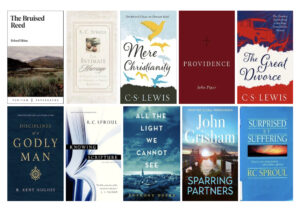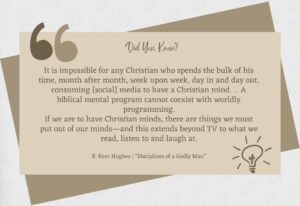Each New Year, Nick Roark, a blogger I follow, publishes a list of the best books he read the previous year. This list comprises 36 books, with snippets of what he gleaned from each. The list is divided into three sections of 12 books each – the best 12, the next 12, and finally, his future 12. Reading his recommendations and insights on books is always exciting and insightful.
Roark’s list is as deep as it is broad. The bulk of the books are theological, but he also includes others like biographies and fictional reads. What fascinates me the most is the sheer number of books he can cover in a year. I have always wondered how he does it. How does he get time to read all those books? Challenged by Roark, at the beginning of this year, I set myself a challenge to dedicate every free time I get to reading to see how many books I can get through by the end of the year. Here is what I found out: in three months, I have read ten books – more than I read last year! These are the books I’ve read so far. (As you may have guessed, the title of this article was suggested by one of the books I read).

I must admit, I surprised myself. Doing this has been a real eye-opener for me. Besides the many rich insights I have gleaned from the books I have read (I have enjoyed reading every one of them), I have proven to myself that I have time – valuable time that I can utilise to educate myself and develop my mind mentally and spiritually.
When I shared my experience with a good friend, he remarked, “I need a reading anointing.” So, how did I do it? Have I acquired a special “reading anointing” that remained elusive to me before now? In the rest of the article, I will share a few practical ideas that have made an enormous difference in my life, along with a couple of reasons why I believe anyone else keen to improve their reading prowess can easily achieve and surpass my record.
Redeeming time
As a Scientist, my work already involves an awful lot of reading. However, I tend to carry on reading about Science at the slightest opportunity I get (there are too many good papers to read and so little time!). Knowing when to switch off ‘work mode’ has been a challenge. I also volunteer for a few roles at our local assembly, which means I’m engaged in service for up to three evenings a week. Add these to the long days at work, and by the time we’ve dispatched our kids off to bed, I am ready to crash.
My wife and I have, in times past, used our ‘quiet times’ when the kids are in bed to read a book together. Progress with reading together has been slow, as we need to maintain the same pace (one cannot read ahead of the other), but it has been very enriching. When we don’t feel like reading, we just chat each other to sleep, catching up on happenings during the day and planning or praying for the future. At other times, we settle down to a movie. Agreeing which movie to watch, however, usually takes about 10-15 minutes, if not longer. We will endlessly flick through Disney+ or Amazon Prime, looking for a decent, interesting film. But then the moment we start watching one, someone will begin swearing or ‘talking dirty’ or strip naked, and we’ll shut it off, disappointed. Then we will resume the search, and usually before we can pick a new movie, we both feel sleepy, abandon the idea altogether and call it a night.
This year, I have given up movies altogether – save for the odd family movie time (as part of our Sunday evening group activity – see below). What time might have been spent on movies has been repurposed for reading. Additionally, my reading times have been:
- The 10-15 minutes between getting ready and leaving the house for the morning school run.
- When I’m by myself during lunch break, in between munches.
- During the commute. On the train, especially on the tube, where the internet is too patchy to do any meaningful work and seats are sometimes scarce.
- After Lord’s Day service on Sundays. As a family tradition, we dedicate Sundays to family time – spent in worship, reading, and listening to God’s Word and being hospitable. Evenings are spent in a group activity agreed upon with the kids. Sunday afternoons have been gratifying reading times when we don’t have guests over.
As you can tell, my default mode now is to always have a book handy, and to not leave home without one!
Viewing Life in Numbers is Quite Revelatory
In an online blog article, Daily Infographic, drawing from various sources, offered a meticulous breakdown of how the average person—assuming a lifespan of 79 years—allocates their time on Earth. According to the available data, we spend 33 years of our lives in bed, segmented into 26 years of actual sleep and an astonishing seven years spent trying to fall asleep. We spend four years and six months eating, 235 days waiting in queues, six months at stop lights and a year and a half looking for lost items! When it comes to time spent at work, the average individual dedicates 13 years and two months to their profession, including one year and two months of overtime.
Astonishingly, we spend 11 years and four months looking at screens, divided between 8 years and four months of television viewing and three years navigating social media. This is only about two years less than the time we spend at work and more than 12 times the time spent in primary and secondary school. After a long day, most people ‘escape reality’ through social media or streaming movies online. This analysis suggests that the time spent on television and social media alone is substantial enough to educate ourselves several times over or even take up a second job! For most people, this might probably represent the single most significant opportunity to redeem time for reading.
A Deeper Issue
Proving that it is possible to carve out time for reading is helpful, but there is an even deeper motivation for developing a reading habit as a Christian. If you’re a Christian reading this, how do you deal with the nudity, profanity and foul language in most of the screen content out there?
It was R. Kent Hughes who pointed out in his book, ‘Disciplines of a Godly Man’, that “if we are to have Christian minds, there are things we must put out—and this extends beyond TV to what we read, listen to and laugh at.” As David avows in Psalm 101:2-3:
I will ponder the way that is blameless. … I will walk with integrity of heart within my house; I will not set before my eyes anything that is worthless.
Sadly, the Christian community consumes the same content as the world does, and as research shows, at an even faster rate. In a survey by the Barna Group in 2014, practising Christians in America watched 30 minutes more TV per day than those who identified as atheists. If we are to have the mind of Christ, we must intentionally feed on Christ-exalting, God-glorifying, and gospel-centred resources. Reading Christian literature is a great help in this regard.

What If I Don’t Like Reading?
Thankfully, a lot of books now have audio formats available. Blogs like Desiring God offer audio formats for articles. Thus, one can still feast on rich Christian content by listening if reading proves challenging. The added advantage to audio formats is that one can listen and learn while completing house chores, walking the dog, going for a run, or driving to work. The opportunities to enrich the mind and soul are endless!
Concluding Thoughts
In conclusion, it’s clear that the potential for integrating reading into our daily routines exists for all of us. It requires a deliberate pause to recognise those ‘redeemable moments’ that, all too often, slip unnoticed in our busy lives. Embracing reading with intentionality—making it a point always to have a book within arm’s reach—and fostering a disciplined approach to our use of time can transform fleeting minutes into windows of opportunity for growth and learning.
In the end, the commitment to finding time for reading is not just about the act itself but about what it represents—an intentional choice to prioritise our development, and, importantly, our spiritual growth. The rewards of this choice, as I have discovered, are indeed inestimable.



Adding intentionality is key in redeeming the time. Thanks Eben for this insightful piece. I was amazed on the amount of time we spend on other activities. Repurposing my time to the things of our Lord is now crucial more than ever.
Woe, this is very refreshing. Discipline is key if we are to make time for growth and progress. I’ve come to realize that social media is taking much time even than TV today with pop up videos left and right.
This is a call to sit and reorganize for positivity. May God help us. Personally, I’ve been very slow with reading this year but going to challenge myself to improve after this experience. Thanks for sharing Osofo Eben